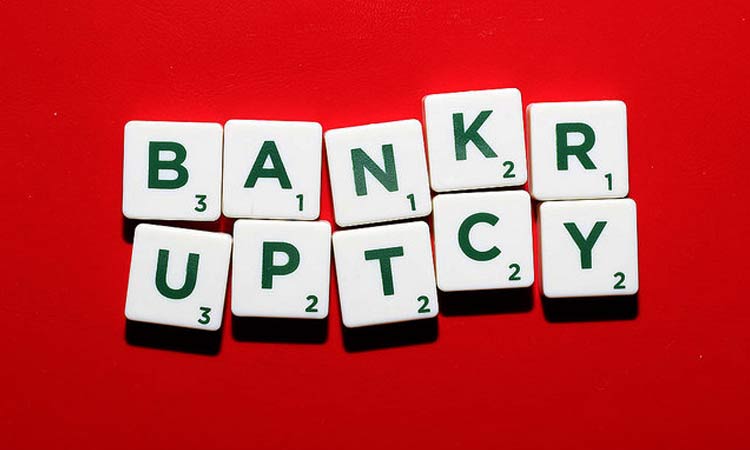Bankruptcy is actually referred to the legal status of an individual or a company that is unable to pay back the outstanding debt. This status could be granted only by a federal or a state court. Usually, personal bankruptcy is really traumatic and is used as a last resort by people who are burdened by the ever-mounting load of bills and loans. Even though going bankrupt could be the most effective tactic for wiping out all your debt obligations, you simply cannot overlook the fact that bankruptcy does have some long-lasting consequences that may have a drastic impact on your way of life. But bankruptcy could be the last hope for some people and it could give a fresh lease of life to some people who need to rebuild their financial life.
Do Not Confuse Between Two Types of Bankruptcy
Your bankruptcy options would actually be depending mostly on your paycheck. According to the new set of rules, you are required to qualify or be eligible for Chapter 7 bankruptcy (partial or full debt liquidation). Or else, you would be required to file a Chapter 13 (plan for debt reorganization). Remember that a Chapter 13 bankruptcy would make things easier for you to recover valuable assets such as your car or your home.
Chapter 7 Bankruptcy in a Nutshell
Chapter 7 bankruptcy would:
- Be liquidating bills, instead of arranging a repayment plan. Assets would, however, be sold to pay off the creditors.
- Be allowing filters for retaining some of your assets such as car or home but would vary as per your specific situation and your state.
- Be requiring filters for meeting a means test that is, qualifying for an exemption.
- Be taking about four to approximately six months for completion of the process though it would be varying from location to location.
- Be remaining on your credit profile for a decade after bankruptcy has been granted to you.
Chapter 13 Bankruptcy in a Nutshell
You can look for info on chapter 13 online or ask your consultant or legal counsel for formal details. It is worth noting that declaring bankruptcy under chapter 13 would
- Put you on to a new repayment plan, meaning you get only a basic living allowance, and the rest of the money you make will be utilized to repay debts.
- Reflect on your credit report for seven years beyond the entire repayment period, and also throughout the period.
- It will, however, make it a lot easier to retain your assets like a car or your home.
Bankruptcy Filing
Most candidates filing for bankruptcy is first required to seek credit counseling from a US Courts-approved provider, at least, 3 months before filing. There are not too many counselors who have gained this approval, but the good thing is most of the approved ones have the option for online or telephone counseling, so you don’t have to be there in person for the sessions.
Once the credit counseling is done, you must hire a lawyer for assistance with filing the claim. While having legal counsel is not mandatory, it will expedite the entire process and really is in your best interest. There are certain free legal services you can resort to if you can’t afford an attorney, so you should check with the American Bar Association. It is also worth keeping in mind that the entire process will have to be completed in a federal court and could cost a few hundred dollars in fees.
Conclusion
Once you go through bankruptcy, you would not be getting a loan or cannot use your credit cards when some unexpected expenses come your way. Once you are discharged from Chapter 7, you should focus on creating an emergency fund and keep replenishing it as a top priority. If you are still in the process of repaying your debts as per Chapter 13 repayment plan and your financial situation is pretty tight, you must try brainstorming. Think if you could sell something on eBay, or if you could put up your garage on sale etc. Your primary objective should be to build an emergency fund at the earliest once you are free from bankruptcy order.
About Author: Stuart Jefferson is a financial advisor working for a top audit firm. He also runs a blog about budgeting, wealth management, debt mitigation etc., and his latest series of posts revolve around bankruptcy. He shares info on Chapter 13 bankruptcy, various other types, their prerequisites, and perks.


Be the first to comment on "Bankruptcy Facts You Need to Know"